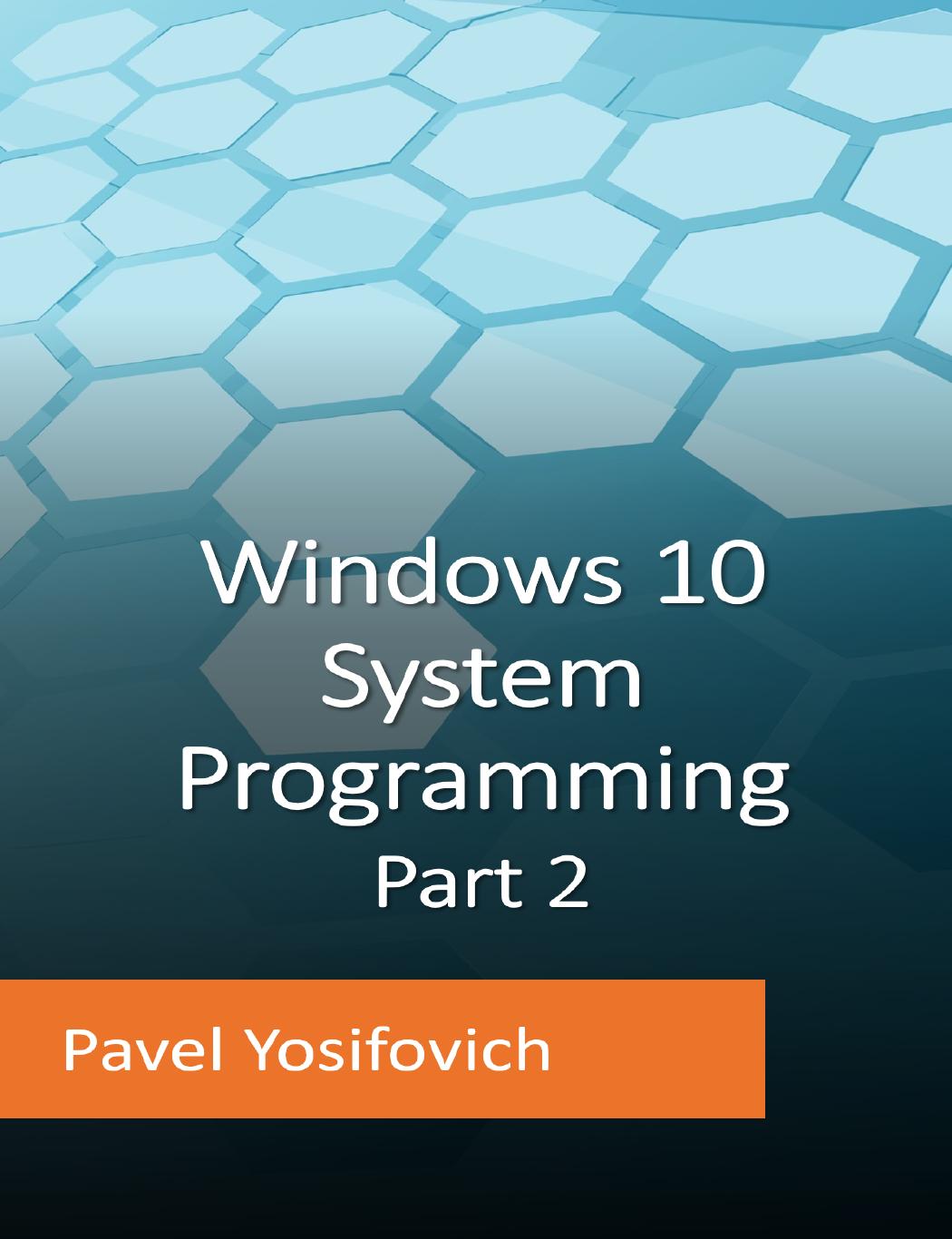

Most ebook files are in PDF format, so you can easily read them using various software such as Foxit Reader or directly on the Google Chrome browser.
Some ebook files are released by publishers in other formats such as .awz, .mobi, .epub, .fb2, etc. You may need to install specific software to read these formats on mobile/PC, such as Calibre.
Please read the tutorial at this link: https://ebookbell.com/faq
We offer FREE conversion to the popular formats you request; however, this may take some time. Therefore, right after payment, please email us, and we will try to provide the service as quickly as possible.
For some exceptional file formats or broken links (if any), please refrain from opening any disputes. Instead, email us first, and we will try to assist within a maximum of 6 hours.
EbookBell Team

5.0
48 reviewsfrom the Introduction
The term System Programming refers to programming close to an operating system level. Windows 10
System Programming provides guidance for system programmers targeting modern Windows systems,
from Windows 7 up to the latest Windows 10 versions.
The book uses the documented Windows Application Programming Interface (API) to leverage systeml evel facilities, including processes, threads, synchronization primitives, virtual memory, I/O, security and
more. The book is presented in two parts, due to the sheer size of the Windows API and the Windows
system facilities breadth. You’re holding in your hands (or your screen of choice) part 2.
The book is intended for software developers that target the Windows platform, and need to have a levelof control not achievable by higher-level frameworks and libraries. The book uses C and C++ for code
examples, as the Windows API is mostly C-based. C++ is used where it makes sense, where its advantages
are obvious in terms of maintenance, clarity, resource management, or any combination of the above. The
book does not use non-trivial C++ constructs, such as template metaprogramming. This book is not about
C++, it’s about Windows.